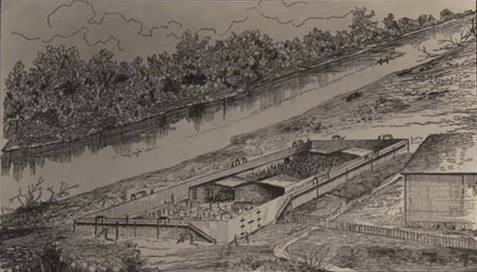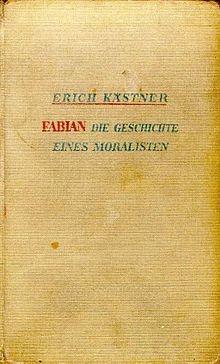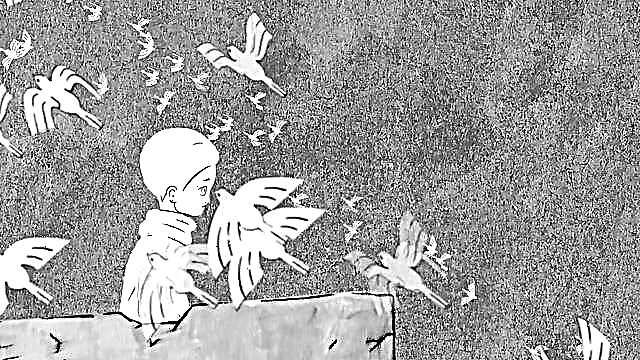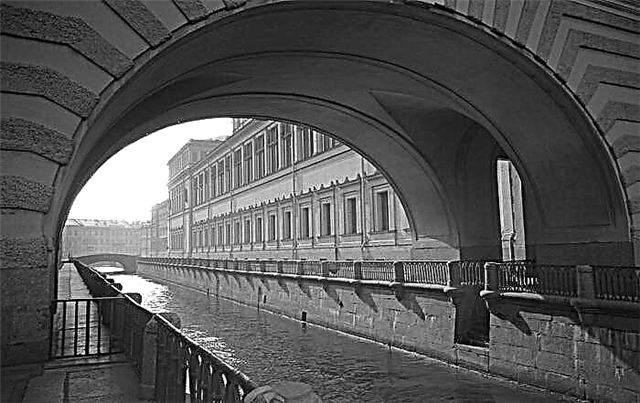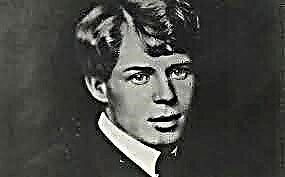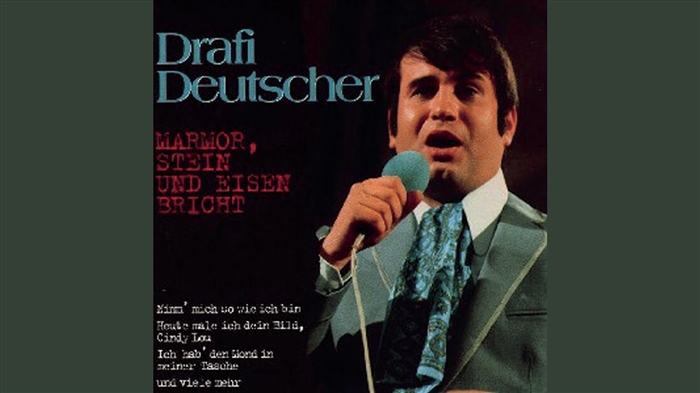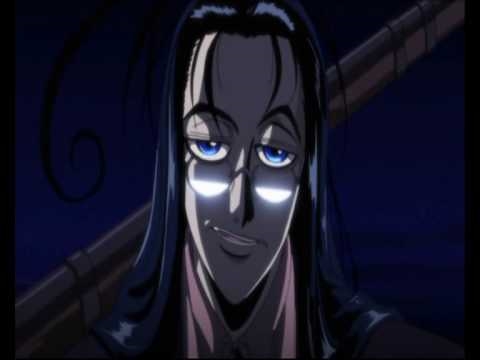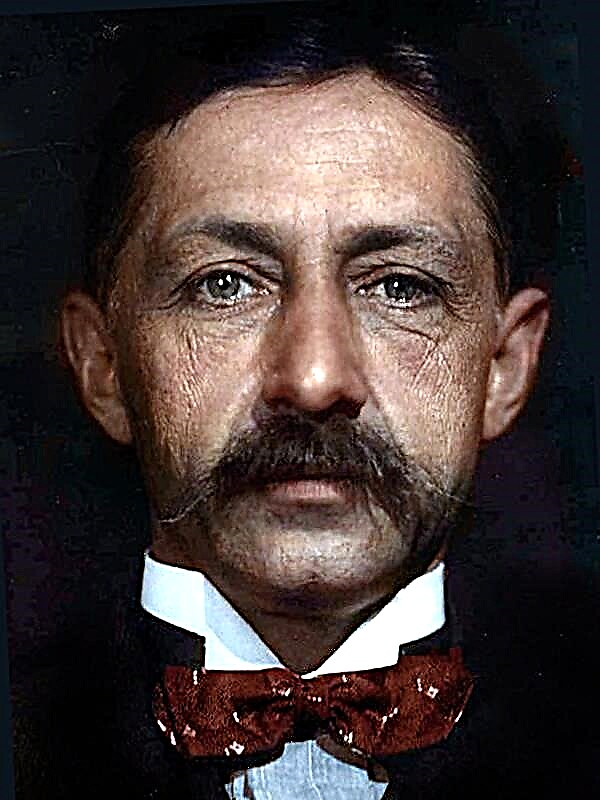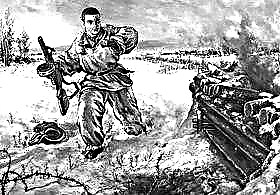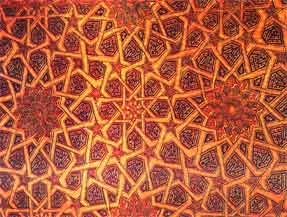Nedokoro Mitsusaburo (Mitsu), waking up before dawn, tries again and again to find a sense of hope, but in vain. He recalls his comrade who stripped naked, painted his head with red paint and hanged himself. A year before his death, he interrupted classes at Columbia University, returned to his homeland and was treated for a mild mental disorder. Before leaving America, a friend met Mitsu’s younger brother, Takashi, who came there as part of a theater group who staged the play “Our Own Shame”. This group included participants in the political events of 1960, when students protested against the Japanese-American “security treaty” and disrupted the visit of the US president to Japan.
Now, the repentant participants in the student movement with their performance seemed to be asking the Americans for forgiveness. Takashi was planning to leave the troupe and travel on his own when he came to America, but he was not afraid of being expelled from the country. Comrade Mitsu also took part in student speeches and was hit on the head with a club - since then he has developed symptoms of manic-depressive psychosis. After meeting with a friend, Takashi really left the troupe, and there was no news from him for a long time. And finally, Takashi announced that he was coming. Mitsu thinks whether to tell his brother about his inferior child, who is in the clinic, ponders how to explain to him the drunkenness of his wife, whom the brother is not yet familiar with. When Takashi arrives, Mitsu Natsuko’s wife quickly finds a common language with him. Takashi suggests Mitsu return to Shikoku in his native village and start a new life.
In America, Takashi met the owner of the Shikoku department store. He wants to buy an old barn belonging to their family, transport it to Tokyo and open a national restaurant in it. The brothers need to go to their homeland to observe its disassembly.
In addition, Takashi is interested in the past of their kind. He heard the story that one hundred years ago, in 1860, their great-grandfather killed his younger brother and ate a piece of meat from his thigh to prove to the authorities his innocence in the rebellion raised by his brother. Mitsu heard a different version: after the uprising, his great-grandfather helped his brother hide in the forest and escape to Koti. From there, the brother of his great-grandfather crossed the sea to Tokyo, changed his name and later became an outstanding person. The great-grandfather received letters from him, but did not tell anyone about it, because many people were killed in the village through the fault of his brother, and the great-grandfather was afraid that the anger of the villagers would fall on his family.
Takashi and his "guard" - the very young Hoshio and Momoko, looking into their idol's mouth - go to Shikoku. Two weeks later, Mitsusaburo and his wife join them. Natsuko decides to stop drinking. Takashi enjoys the newfound roots. Village youth need a leader - a man who looks like the brother of great-grandfather Mitsu and Takashi. They themselves can not do anything plainly: they decided to raise chickens, but before that they clumsily got to work, that several thousand chickens were about to die of hunger. Jin, the former nanny of Mitsu and Takashi, is afraid of being evicted with the whole family, but Mitsu reassures her: she and her brother are going to sell only the barn; the land, the main house and the outbuilding will remain, so that no one will deprive her of housing.
The urn with the ashes of brother S, the elder brother of Mitsu and Takashi, who was killed in a clash with residents of a neighboring Korean village, is stored in a village temple. The speculative Koreans, having discovered where the rice had been hidden in the village, had repeatedly stolen it and taken it to the city for sale. It was unprofitable for the peasants who covered the rice to contact the police, so they began to incite local youth to teach Koreans a lesson. During the first raid on the Korean village, one Korean was killed, during the second raid, the Japanese were supposed to die. Brother S did not try to defend himself during the fight and voluntarily sacrificed himself. Mitsu believes that Brother S was painfully worried that during the first raid, he and his friends stole moonshine and toffee from the Koreans. It seems to Takashi that he remembers how Brother S, dressed in the uniform of a cadet of a school of sea pilots, leading the guys from the village, summoned the bravest guys from the Korean village to battle. Mitsu is sure that all this is a figment of Takashi’s imagination, which then, in 1945, was still small. The weak-minded mother, whom Brother S forcibly took to a psychiatric hospital, did not even want to say goodbye to the deceased, so he was simply cremated and his remains remained in the temple. Sister Mitsu and Takashi, who was very fond of music, was also not quite normal and committed suicide. Their nanny Dzin believes that Natsuko gave birth to an inferior child due to her husband’s poor heredity. Natsuko starts drinking again.
The chickens bred by the local youth died. Takashi travels to the city to consult with the owner of the supermarket (who incurred half of the costs of raising chickens), what to do next. Young people hope that he will be able to persuade the owner of the supermarket not to bring a lawsuit against her. In addition, he expects to receive a deposit for the barn from the owner of the supermarket. The owner of the supermarket is a Korean, he is one of those who were driven here once for logging. Gradually, he bought land from his fellow villagers and made a fortune, taking over all the trade in the village.
Takashi decides to organize a football team and train local youths in it. He becomes their leader. Mitsu recalls how, in I860, the brother of his great-grandfather taught fellow villagers to fight with bamboo peaks. Takashi wants to be like him. In Mitsu’s dream, the image of his great-grandfather’s brother merges with the image of Takashi. Mitsu heard from his mother that the uprising of 1860 came from the greed of the peasants, who were led by the brother of his great-grandfather. The peasants destroyed and burned the main house on the Nedokoro estate. They would have captured the barn, where the great-grandfather was locked, but the peasants had wooden peaks, and the great-grandfather had a gun. The great-grandfather's brother was a dangerous madman in the eyes of the Naedokoro family, burning his own home. Mother noted that the peasants had wooden peaks, and the great-grandfather had a gun.
The abbot brings Mitsu notes of his older brother, who died at the front, - brother S shortly before his death passed them to him. The abbot tells Mitsu his version of the events of I860. He says that just before the uprising, a messenger from Koti arrived in the village, who brought the gun. He met with his great-grandfather and his brother. Seeing the growing discontent of the peasants, they decided that the best thing was to give him a way out, that is, to raise an uprising. It is known that the leaders of the uprising were always arrested and punished. But the brother of his great-grandfather was promised that if he becomes the head of the local youths, who were mainly the second and third sons in the families, that is, mouths over, then they will help him to escape to Koti. The uprising lasted five days, and as a result, the demand of the peasants to liquidate the preliminary tax system was satisfied. However, the leaders of the riot locked themselves in the barn and resisted the people of the prince. Great-grandfather figured out how to lure them out of there. They were executed by everyone except the brother of his great-grandfather, who hid in the forest.
Mitsu refuses to read the notes of his older brother, Takashi reads them. He sees a soul mate in his elder brother, calls him "an active creator of evil." Takashi says that if he lived during the time of his elder brother, this diary could be his own.
A boy is drowning in the river, and footballers led by Takashi save him. Takashi becomes the recognized leader of the local youth. Mitsu wants to return to Tokyo. He is like a rat, which always strives for its hole. He feels like a stranger in the village. Natsuko declares that he remains in the village. Mitsu postpones departure, but moves to the barn. Natsuko stays in the house with Takashi, Hoshio and Momoko. She stops drinking again, for Takashi insists on it. Takashi tells the local youth about the uprising of I860, about how his instigators forced other villages to join them; youth gave vent to its wild temper, ruined everything in its path. The peasants were ruled by cruel youths. Therefore, when the prince's people came and the youth tried to resist, the adult peasants did not support her. The guys from the football team felt like young people who rebelled in I860. Takashi wants to revive the rebellious spirit of their ancestors. In the supermarket arrange New Year's distribution of goods. Slow-moving goods are distributed free of charge to local residents, each with one thing. A crowd gathers at the door, a crush begins. Through the efforts of Takashi, distribution grows into robbery, he tries to ensure that all the villagers take part in it. Events take on a nationalist character: after all, the owner of the supermarket is Korean. The leader of the local youth, who bred chickens, wants to oust the owner of the supermarket and create a collective board from the villagers. Takashi supports him. Locals already repent that they robbed a department store, but Takashi photographed everything and deprived them of the opportunity to renounce the robbery.
The abbot gives Mitsu several letters from his great-grandfather’s brother, written after his flight to Koti. Hoshio moves to Mitsu's barn: Takashi sleeps with Natsuko, and Hoshio is unable to bear it. Takashi claims that she and Natsuko decided to get married. Local residents make plans to compensate the owner of the supermarket for the damage from robbery and buy the store. They want to hand it over to the ruined village shopkeepers so that the economic power in the village falls into the hands of the Japanese. Mitsu is possessed by the thought that the rebellion could end successfully for Takashi, and even if it fails, Takashi will be able to leave the village and enjoy a peaceful married life with Natsuko.
At night, Natsuko comes to the barn and reports that Takashi tried to rape the village girl and killed her. The guys from the football team left Takashi and ran home, and tomorrow the whole village will come to seize him. Takashi wants to defend himself and asks Mitsu to swap places with him: Mitsu will sleep in the house, and he will sleep in the barn. In the barn, Takashi tells Mitsu the truth about his relationship with his inferior sister. There was a love affair between them, and the sister became pregnant. Takashi convinced her to tell her uncle, whom they lived after the death of her mother, that some stranger had raped her. Her uncle took her to the hospital, where she had an abortion and was sterilized. She could not recover from the shock, and Takashi, realizing the seriousness of the operation she underwent, moved away from her, and when she tried to touch him, she hit her. The next morning my sister was poisoned.
Takashi says that even if the villagers don’t lynch him tomorrow, his days are still numbered. He bequeaths Mitsu his eye - once in his childhood, Mitsu was knocked out. Mitsu does not believe that Takashi is really preparing for death. Mitsu is sure that Takashi did not kill the girl, he just wants to feel like a real criminal, he sees something heroic in it, so he gives an accident for the murder, knowing for sure that the court will establish the truth anyway and he will be released or, in extreme cases, will be given three years in prison, after which he will return to society as an ordinary, unremarkable person. Mitsu is swept by a wave of contempt for his brother. Takashi is discouraged. Mitsu leaves for the house, meanwhile Takashi ends up with himself. Hoshio and Momoko decide to get married and leave the village: now that Takashi is not alive, they need to stick together. The owner of the supermarket did not herd to claim damages and did not report to the police. He sent a truck with goods to the village and reopened his store. He begins to dismantle the barn to transport it, and discovers a large basement, which Mitsu did not even suspect. It turns out that the brother of his great-grandfather after the failure of the uprising did not disappear anywhere, he spent the rest of his life in this basement, and his letters are a figment of his imagination and reading books. The owner of the supermarket says that he was in the village when his brother S was killed in 1945. At the height of the fray, brother S dropped his hands, they killed him, and it is not even known who they were: Koreans or Japanese, probably both .
Natsuko accuses Mitsu of causing Shaky to feel shame before his death and thus made his suicide even worse. Natsuko is pregnant from Takashi and decides to save the baby.
Mitsu read a book about the unrest in their village in 1871, which ended in the suicide of the chief adviser. The rebels acted so cunningly and skillfully that they achieved everything they wanted without bleeding their hands. The name of their leader remained unknown, and Mitsu suddenly realizes that this was the brother of his great-grandfather - after ten years of voluntary retreat, he, having thought about the failure of the first uprising, managed to raise the second and achieve the desired success. The abbot tells Mitsu that although at first glance the rebellion raised by Takashi failed, everyone recognized the youth as a real force and even selected one guy from the youth group in the municipality. The stagnant rural organism received a thorough shake.
Mitsu climbs into the basement and thinks of Takashi, their ancestors, their entire family. Mitsu and Natsuko decide not to part.

